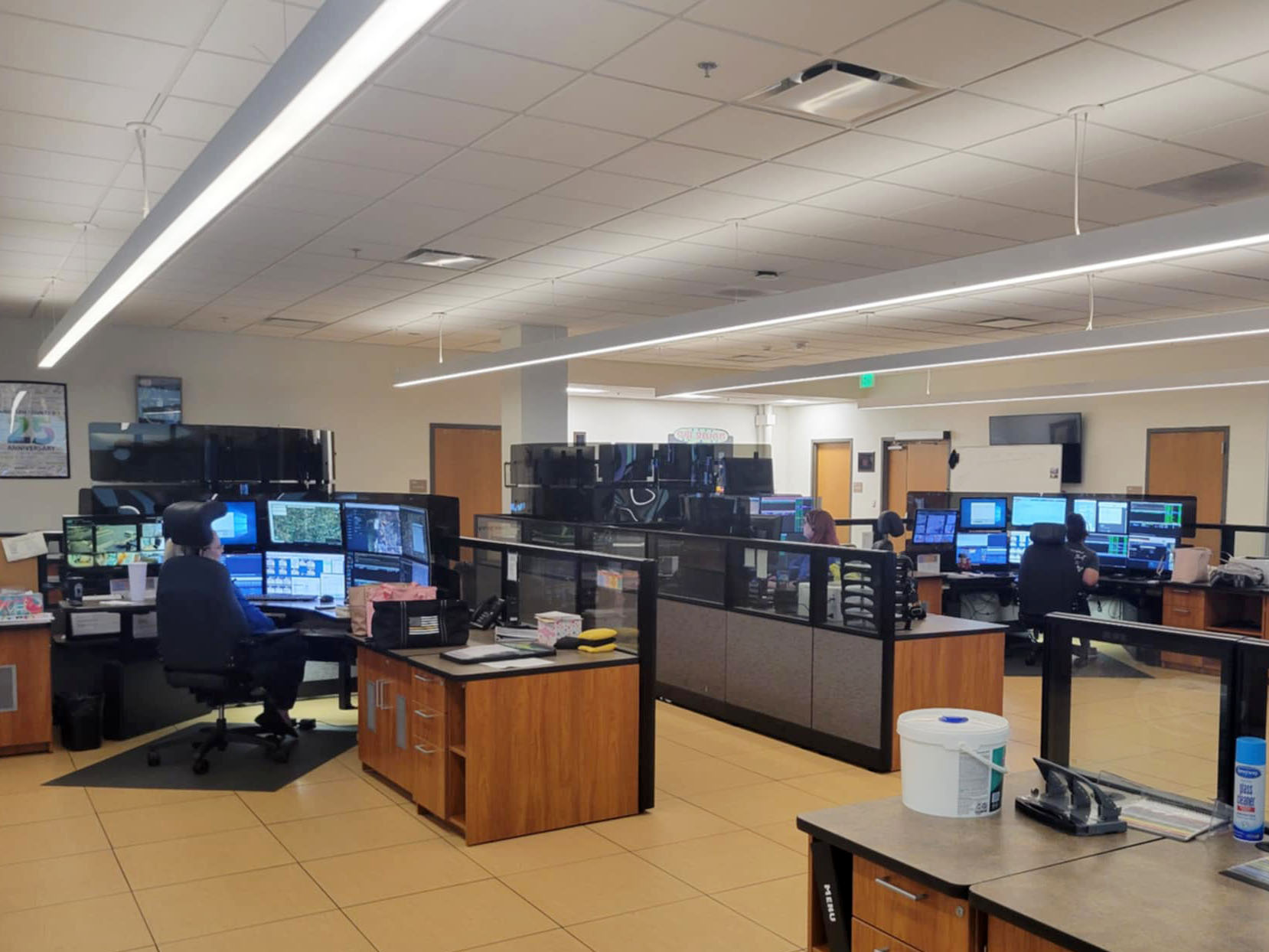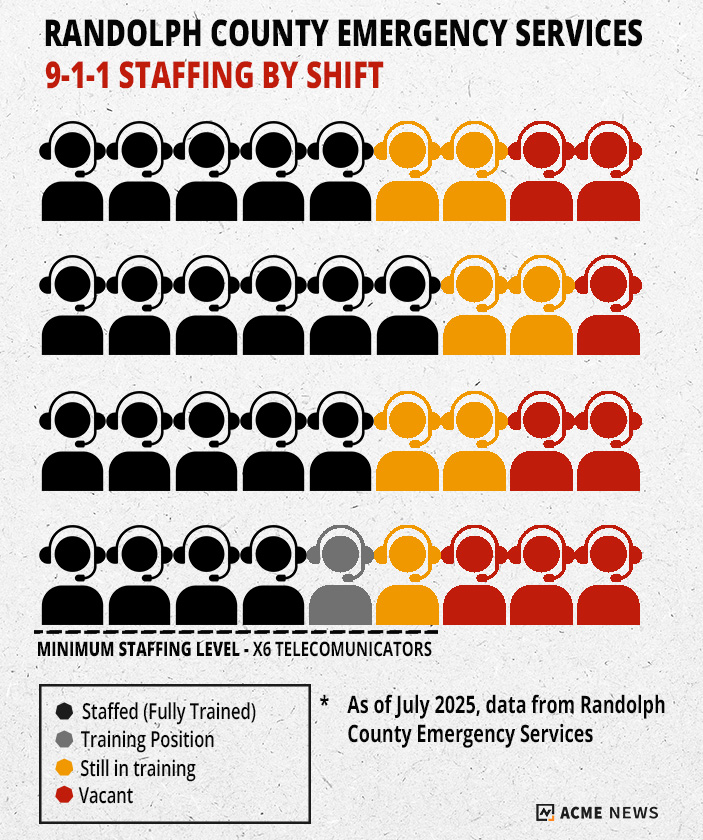Welcome!

(Photo provided by Randolph County Emergency Services)
Randolph County Turns to Traveling Dispatchers to Help Fill 9-1-1 Staffing Shortage
ASHEBORO — Randolph County continues to face a staffing shortage at its 9-1-1 communications center, and officials are planning a temporary fix: hiring contracted, traveling dispatchers.
Randolph County Emergency Services Deputy Chief Jared Byrd presented the proposal to the Randolph County Board of Commissioners at their July 7 meeting, requesting $175,000 in carryover funds from the previous fiscal year. Those unspent funds — primarily savings from lower-than-expected health insurance costs and unused vehicle maintenance budgets — will be used to pay for two full-time contracted dispatchers on a six-month basis.
Modeled after the healthcare industry’s use of traveling nurses during the COVID-19 pandemic, several companies now offer contracted 9-1-1 dispatchers — and they're already in use nearby, including in High Point. The goal is to ease staffing shortages that leave most shifts operating below the department’s safe minimum until more permanent staff can be hired and trained.

"It's for sure a Band-Aid," Byrd told commissioners. “We didn’t budget for travel communicators in our current budget because we had hoped this is not a permanent fix. We don’t want it to be because our staff is way cheaper than hiring a contractor.”
The $175,000 includes $150,000 to cover the base contract — based on 40 hours per week with no overtime or holiday pay — and an additional $25,000 to cover overtime and holiday pay as needed.
On any given day, the 9-1-1 center needs a minimum of six dispatchers on duty, according to Byrd — though eight or nine are really needed to manage the daily call volume. “Three out of the four shifts don’t have enough fully trained staff to meet the minimum without part-time employees or full-time staff working extra shifts,” he said. With a supervisor set to leave later this month for a job in another county, all four shifts will soon be operating below minimum staffing levels.
The 9-1-1 center is currently budgeted for 38 telecommunicator positions. Of those, 20 are fully trained staff, and seven others are still in training. Even with ongoing hiring efforts, keeping positions filled has remained a challenge.
The job of a 9-1-1 telecommunicator is fast-paced and demanding. Along with taking emergency calls, they dispatch and coordinate responses with police, fire, and EMS — often doing all three at once. They work across eight computer screens, two keyboards, three mice, a foot pedal, and about 10 programs. It’s no surprise that training takes six months, and historically, only half of new hires make it through.
Byrd said the department has consulted with other agencies, including the City of High Point, about their experience with similar staffing firms, some of which are based as far away as Colorado.
Commissioners unanimously approved the funding request, allowing the department to move forward. The first traveling dispatcher could arrive within four to six weeks, with much of that time spent training on Randolph County’s systems and procedures.
